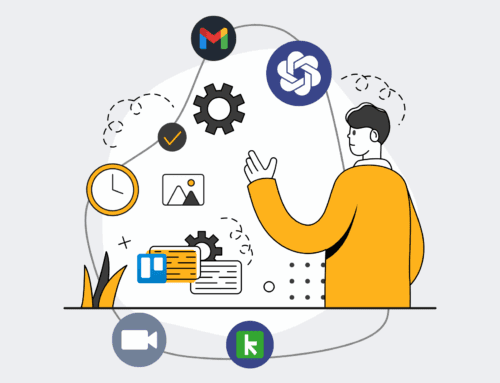Best-in-Class Tools for Securely Exporting Large Datasets
In today’s data-driven world, the ability to collect, analyze, and leverage information is paramount for business success. Yet, the often-overlooked challenge of securely exporting large datasets can become a significant bottleneck, threatening compliance, data integrity, and operational efficiency. For organizations managing substantial customer records, HR data, or operational metrics, the simple act of moving data from one system to another is fraught with complexities. This isn’t just about transferring files; it’s about ensuring data security, maintaining compliance, and preserving the integrity of critical information throughout its lifecycle.
At 4Spot Consulting, we understand that mishandling data exports can lead to disastrous consequences, from regulatory fines to reputational damage. Our clients, particularly those in HR and recruiting, frequently encounter scenarios requiring the secure export of sensitive personal data for archiving, audits, or migration. Relying on manual processes or inadequate tools for such crucial tasks is a gamble no modern business can afford to take.
Why Secure Data Export is Non-Negotiable for Business Operations
The stakes involved in data export extend far beyond mere file transfer. Each dataset, especially large ones containing Personally Identifiable Information (PII) or proprietary business insights, is a valuable asset that requires stringent protection. Consider the implications of a data breach stemming from an unsecured export: loss of customer trust, financial penalties under regulations like GDPR or CCPA, and significant operational disruption. Moreover, accurate and secure data exports are vital for comprehensive business intelligence. If your analytics team can’t reliably access clean, complete datasets, strategic decision-making becomes compromised.
For HR and recruiting firms, exporting candidate applications, employee records, or historical performance data is a regular necessity. Whether it’s for offboarding, system migrations, or compliance audits, these operations demand tools and processes that guarantee security and accuracy. This is where the concept of “best-in-class” moves from aspiration to absolute necessity.
Beyond Manual Drudgery: The Imperative for Automation in Data Export
Many organizations still grapple with manual or semi-automated data export processes. These often involve a series of cumbersome steps: downloading CSVs, manually cleaning data, encrypting files, and then laboriously uploading them to a new destination. This approach isn’t just inefficient; it’s a breeding ground for human error. Misplaced files, incorrect data mapping, or forgotten encryption steps can lead to significant vulnerabilities. As datasets grow in volume and complexity, manual methods simply don’t scale, consuming valuable time from high-value employees who could be focusing on strategic initiatives.
The solution lies in robust automation. By implementing automated data export workflows, businesses can eliminate repetitive tasks, drastically reduce the risk of human error, and ensure consistent application of security protocols. This shift transforms a tedious, high-risk operation into a streamlined, secure, and reliable process, freeing up your team to drive growth rather than get bogged down in data administration.
Best-in-Class Tools and Methodologies for Ironclad Data Export
Achieving truly secure and efficient large dataset exports requires a strategic combination of robust tools and meticulously designed methodologies. At the heart of our recommended approach is an integration platform that acts as the orchestration layer, connecting various data sources to secure destinations.
The Power of Integration Platforms: Make.com
For complex data export scenarios, platforms like Make.com (formerly Integromat) are indispensable. Make.com allows us to build sophisticated automation scenarios that can extract data from virtually any system – be it a CRM like Keap, a custom database, or an HRIS – apply transformation rules, encrypt the data, and then securely transfer it to a designated storage location. This eliminates the need for manual intervention at each step, ensuring consistency and adherence to predefined security parameters.
Secure Data Sources and Destinations
When dealing with sensitive information, the choice of source and destination systems is critical. For instance, exporting data from a robust CRM like **Keap** requires careful API integration to ensure all relevant fields are captured accurately. For the destination, we advocate for secure cloud storage solutions such as AWS S3, Google Cloud Storage, or Azure Blob Storage. These platforms offer enterprise-grade security features, including encryption at rest and in transit, access controls, and auditing capabilities, providing a secure haven for your exported data.
Advanced Security Protocols and Data Handling
Beyond the tools, the methodology is paramount. We always implement strong encryption during transit (e.g., SFTP, HTTPS with TLS 1.2+) and ensure data is encrypted at rest within the storage solution. For particularly sensitive data, anonymization or pseudonymization techniques can be applied during the export process, further reducing risk. Access to these exports must be strictly controlled, leveraging role-based access control (RBAC) and multi-factor authentication (MFA) to prevent unauthorized access.
4Spot Consulting’s Strategic Approach to Data Export Security
Our approach at 4Spot Consulting is rooted in our OpsMesh framework – a holistic strategy for automating and integrating business operations. For data export, this begins with an **OpsMap™** diagnostic, where we meticulously audit your current data flows, identify vulnerabilities, and pinpoint opportunities for secure automation. We don’t just recommend tools; we design a complete, end-to-end solution tailored to your specific compliance needs and operational requirements.
Through **OpsBuild™**, we leverage platforms like Make.com to construct bespoke automation workflows. This might involve building a routine to export specific Keap CRM data weekly, encrypt it, and deposit it into a secure cloud archive, triggering alerts for successful completion or potential issues. Our solutions are designed to eliminate human error, reduce operational costs, and significantly enhance data security, turning what was once a liability into a reliable, automated asset.
Ready to uncover automation opportunities that could save you 25% of your day and secure your critical data? Book your OpsMap™ call today.
If you would like to read more, we recommend this article: Beyond Live Data: Secure Keap Archiving & Compliance for HR & Recruiting








